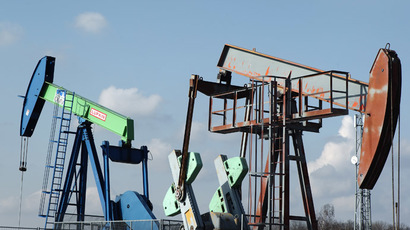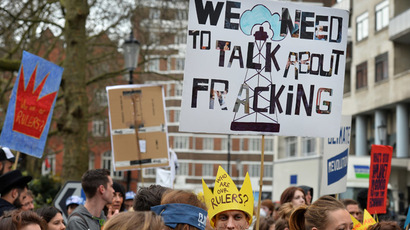Fracking industry fumes as researchers reveal high levels of leaking methane
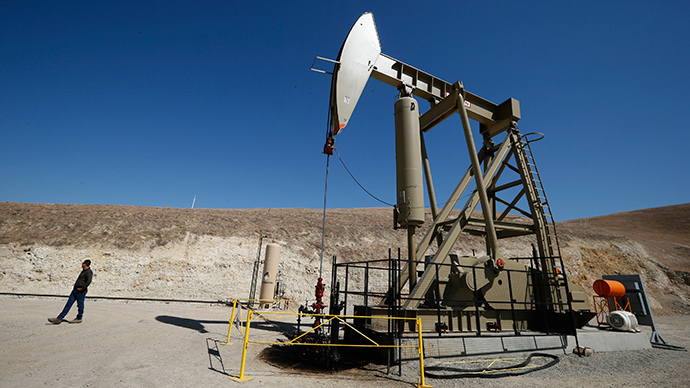
The latest drilling techniques for obtaining gas, which drill horizontally as opposed to the more traditional vertical drilling, shows a higher rate of leaking methane, according to a study that could spell problems for fracking across the nation.
After poring over data from the Pennsylvania Department of
Environmental Protection involving more than 41,000 wells, it was
determined that more than 6 percent of the active gas wells
drilled in the Marcellus region of Pennsylvania “show
compromised cement and/or casing integrity,” according to an
academic paper published on Monday by the
Proceedings of the National Academy of Sciences.
A team of four scientists – working without federal funding –
conducted analysis on more than 75,000 state inspections of gas
wells performed in Pennsylvania since 2000.
The results suggest that hazardous leaks of methane could pose
potential obstacles for drilling across the nation, said study
lead author Cornell University engineering professor Anthony
Ingraffea, who leads an environmental activist group that helped
subsidize the study.
The leak rate of methane was found in nearly 10 percent of
horizontally drilled wells for before and after 2009 in the
northeastern part of Pennsylvania, where fracking is a serious
business.
"Something is coming out of it that shouldn't, in a place
that it shouldn't," said Anthony Ingraffea, Cornell
professor of civil and environmental engineering who led the
research team, as quoted by AP.
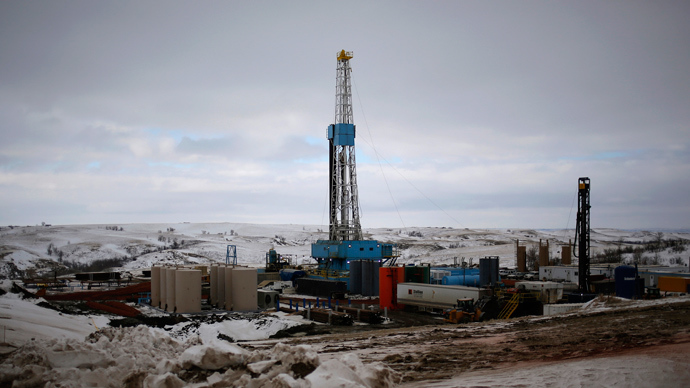
The researchers admitted they are not sure exactly where the
leaking methane goes — into the water or the air, but neither
alternative is a positive prospect in light of a number of
incidences thought to involve the escaping gas.
“These results, particularly in light of numerous
contamination complaints and explosions nationally in areas with
high concentrations of unconventional oil and gas development and
the increased awareness of the role of methane in ... climate
change, should be cause for concern,” said the researchers
in the paper.
The researchers did not specify the size of the leaks, saying
only that the metal pipes used to extract the natural gas were
suffering "casing and cement impairment."
“In a typical well, hundreds of bags of cement are mixed and
injected,” said Ingraffea. “If the water-to-cement
mixture ratio isn’t right, you have problems. With too much
water, the cement shrinks. With too little water, the mixture
dries too fast.”
The research was roundly and predictably condemned by fracking
proponents, who are determined to tap into trapped natural gas in
fields across Pennsylvania, West Virginia and New York, where
legislation was just passed giving towns the right to ban
fracking.
New York's top court issues ruling saying towns have the power to ban fracking: http://t.co/s4pjCofDO1
— David Sirota (@davidsirota) June 30, 2014
Marcellus Shale Coalition spokesman Travis Windle complained the
paper reflects Ingraffea's "clear pattern of playing fast and
loose with the facts."
Chris Tucker, spokesman for Energy In Depth, said what the
researchers may have confused leaks with pressure buildup in the
pipes.
"The trick these researchers are pulling here is conflating
pressure with leakage, trying to convince folks that the mere
existence of the former is evidence of the latter," Tucker
told AP in an email.
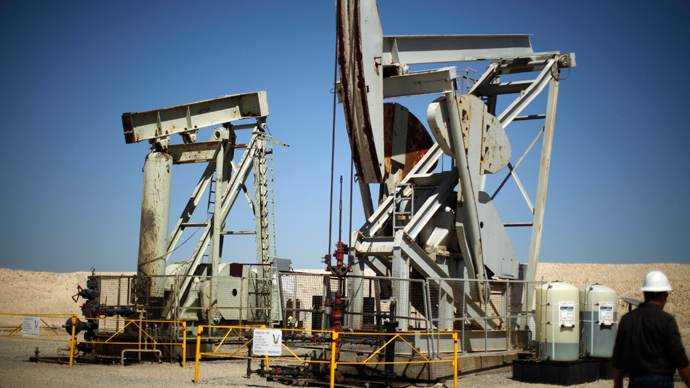
Other scientists, however, were of the opinion that the findings
of the study deserve careful consideration
"It clearly indicates that there is a problem with the
production" of the fracking techniques, warned Ira Leifer,
University of California Santa Barbara engineering professor, who
did not participate in the study, AP reported.
Colorado halts fracking wastewater injections after earthquake hits state
Meanwhile, Pennsylvania environmental officials said their data indicates that methane leaks peaked in 2010 and are on the decrease again, reflecting their campaign to enhance cementing practices.
House votes to expedite US natural gas exports
Other contributors to the paper, ‘Assessment and Risk Analysis of Casing and Cement Impairment in Oil and Gas Wells in Pennsylvania, 2000-2012’, were Martin Wells, Cornell professor of statistical sciences; Renee Santoro of Physicians, Scientists and Engineers for Healthy Energy, Ithaca, New York; and Seth Shonkoff, University of California, Berkeley.













